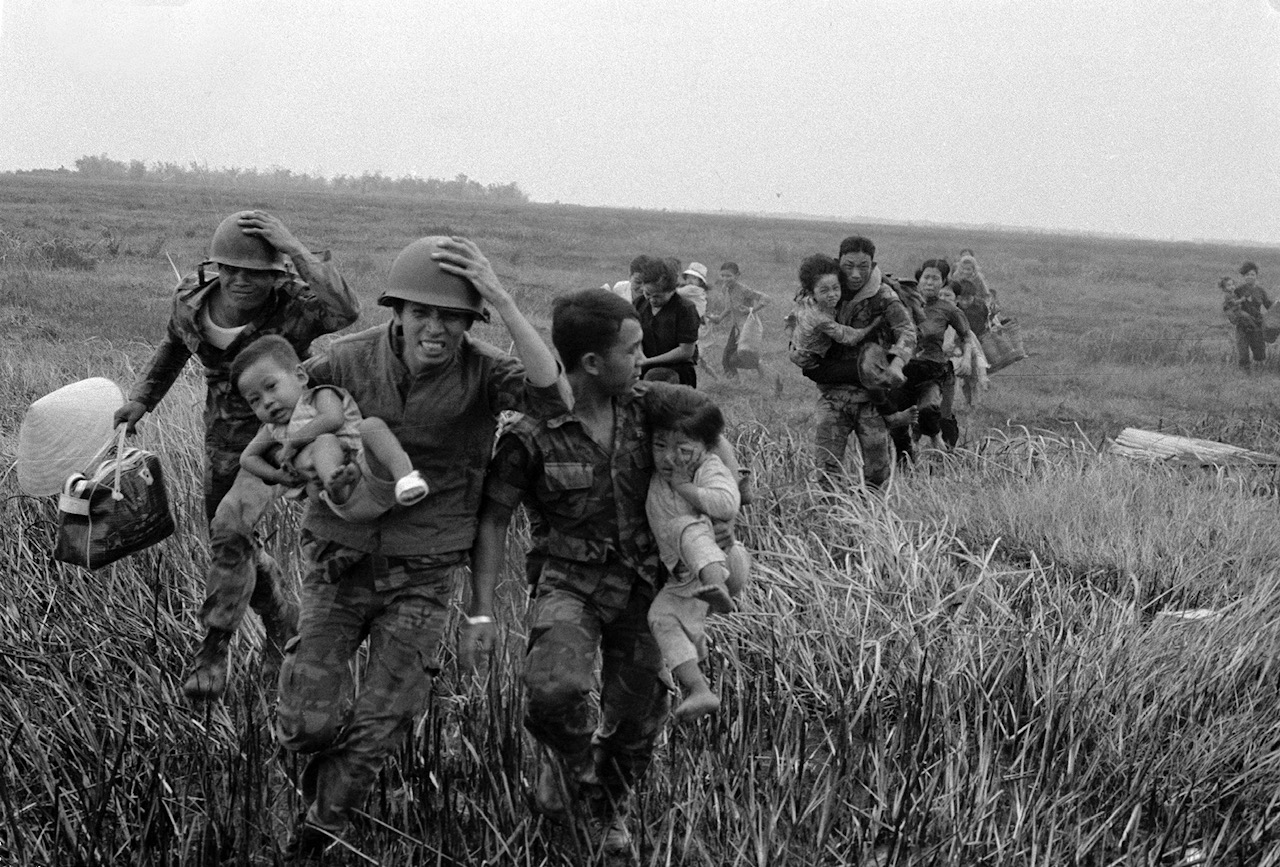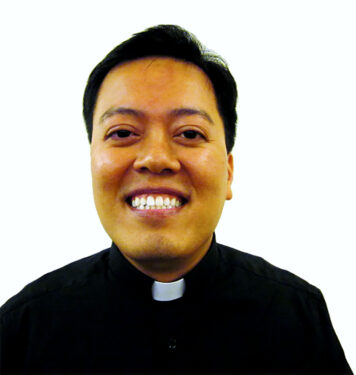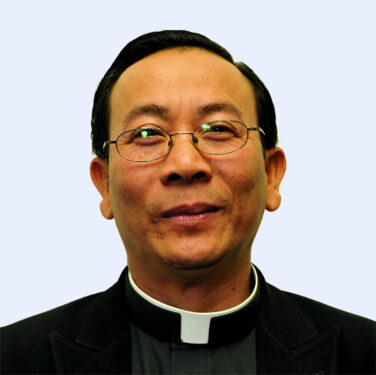
ASTORIA — U.S. military involvement in Vietnam ceased on March 29, 1973, when the last American combat troops left the war-torn country. The pullout was brokered through the Paris Peace Accords — one of several provisions intended to bring total peace in the North-South conflict.
But the ceasefire in spring 1973 did not hold. Combat resumed within weeks, this time without U.S. troops. Two years later, the communist North defeated forces in the South and won the war.
Catholic clergy, along with military and government officials, landed in prisons. Among them was Army Lt. Thu Pham, father of Cuong Pham, who was born in December 1973. Today, the younger Pham is a monsignor in the Catholic Church and pastor of Our Lady of Mount Carmel Parish in Astoria.

Msgr. Pham said visits to his imprisoned father are his earliest memories of him.
“We would touch each other’s fingers through the barbed wire,” Msgr. Pham said. “He was not allowed to come out, but he could see me through the fence. And he would say, ‘My son, put your little finger through so I can touch you. I’m so happy to see you.’ ”
Despite the communist victory, the government leaders knew they couldn’t totally eliminate the Catholic Church in Vietnam, Msgr. Pham said. They unsuccessfully tried that in the North after the violent end of French colonial rule in 1954.
“Using the same Chinese tactic, they were burning churches, destroying convents, destroying seminaries, and persecuting the Church in a very violent way,” Msgr. Pham said. “But it only made the Church even stronger, and the people more adversarial against the government.”
Faith Strengthened
Msgr. Pham said his grandparents were young Catholics in the North who joined a mass migration of fellow faithful after the communist takeover.
At that time, the Church had a foothold in North Vietnam going back to the 16th century, which saw the arrival of Spanish and Portuguese priests, followed by French missionaries in the 17th century. The faith took root despite persecutions from ruling dynasties that caused the martyrdom of missionaries and thousands of indigenous Catholics, including 117 proclaimed saints.
After conquering the South in 1975, the communists understood the Catholic faith’s power with its followers. But while destroying the faith seemed impossible, the leaders still tried to isolate it, Msgr. Pham said.
“They felt that if the Vietnamese Church remained disconnected from the wider Church, the people would no longer be influenced by outside forces and ideologies,” Msgr. Pham said. “That way, it would be easier to indoctrinate them.”
Ironically, the opposite happened to Lt. Pham while isolated in prison. He befriended a priest who communicated prayers and Scripture through the barriers via Morse code.
Lt. Pham’s faith only strengthened, his son said.
Black April
Father Peter Nguyen, parochial vicar for St. Francis of Assisi Parish in Astoria, is the director of the Vietnamese apostolate for the Diocese of Brooklyn.

He is several years older than Msgr. Pham, but he endured a similar childhood.
Father Nguyen described how news reports of Russia’s aggression in Ukraine trigger memories of April 1975 when communist forces pushed toward Saigon and disrupted his family from their home in central Vietnam. He was 10 years old.
“The picture is still in my mind,” he said. “We were on the highway. People were dead on both sides. And we could see the fighting, the battles. We got out and we lay under a car. I saw the airborne guys jump from the plane. Were we scared? I would say that.”
The Nguyen family celebrated Easter in the bomb shelter of a refugee camp.
“We called it the Black April,” the priest said.
Sons Became Priests
Father Nguyen’s father was a police commissioner in South Vietnam, so he, too, served a prison term after the war. He rejoined his family six years later.
And under the isolating conditions described by Msgr. Pham, the Nguyen family pursued their faith, but the government still exerted firm control over the Church. For example, Msgr. Pham and Father Nguyen recalled how the government placed quotas on the ordinations of clergy.
Both were told that they had no chances of becoming priests because their fathers had “collaborated” with the South Vietnamese government and the Americans.
But in the early 1990s, the Pham and Nguyen families got permission to emigrate to the U.S., where their sons became priests. Catholic Relief Services facilitated the travel and Catholic Charities of Brooklyn and Queens helped them get settled in New York.
In 2006 Msgr. Pham was sent to Rome by Bishop Nicholas DiMarzio for advanced studies in canon law at the Gregorian University. As a canon lawyer, he worked nine years for Pope Benedict XVI and Pope Francis on revision of the Church’s penal code. Later, he served from 2019-2021 at the Apostolic Nunciature in Washington, D.C., also called the “Vatican Embassy.”
No More Clergy Quotas
Over the years, Msgr. Pham has kept close contact with bishops in Vietnam, who have described a slow improvement in Church-government relations.
Father Nguyen asserted that officials have learned the image of a totalitarian grip on religion is not favorable for economic investment from Western countries like the U.S. “In Vietnam, money talks,” he said.
To that end, Msgr. Pham explained, the government has approved a number of agreements with the Church.
“The progress is very slow,” he said, “but they have allowed certain things. For example, now they allow the free ordination of priests. We’re no longer limited by numbers. They no longer vet our candidates. So that’s a big, big thing.”
There are now 7 million Catholics in Vietnam, from North to South, making Catholicism the largest religious denomination in the country.
“Things are much better,” Msgr. Pham said. “You don’t see any visible persecution, because churches are everywhere. They have been rebuilt. Seminaries are rebuilt, and a lot of young people are participating.
“There’s still control, and there’s still oppression, usually at the highest level — the intellectual level.”
Msgr. Pham said about 1,200 Vietnamese-born priests are now active in spreading the faith in the U.S.
“And every year there are many priestly ordinations that enrich the Church here,” he added. “My father used to say that years ago we were evangelized, now we have the task of evangelizing others.”
